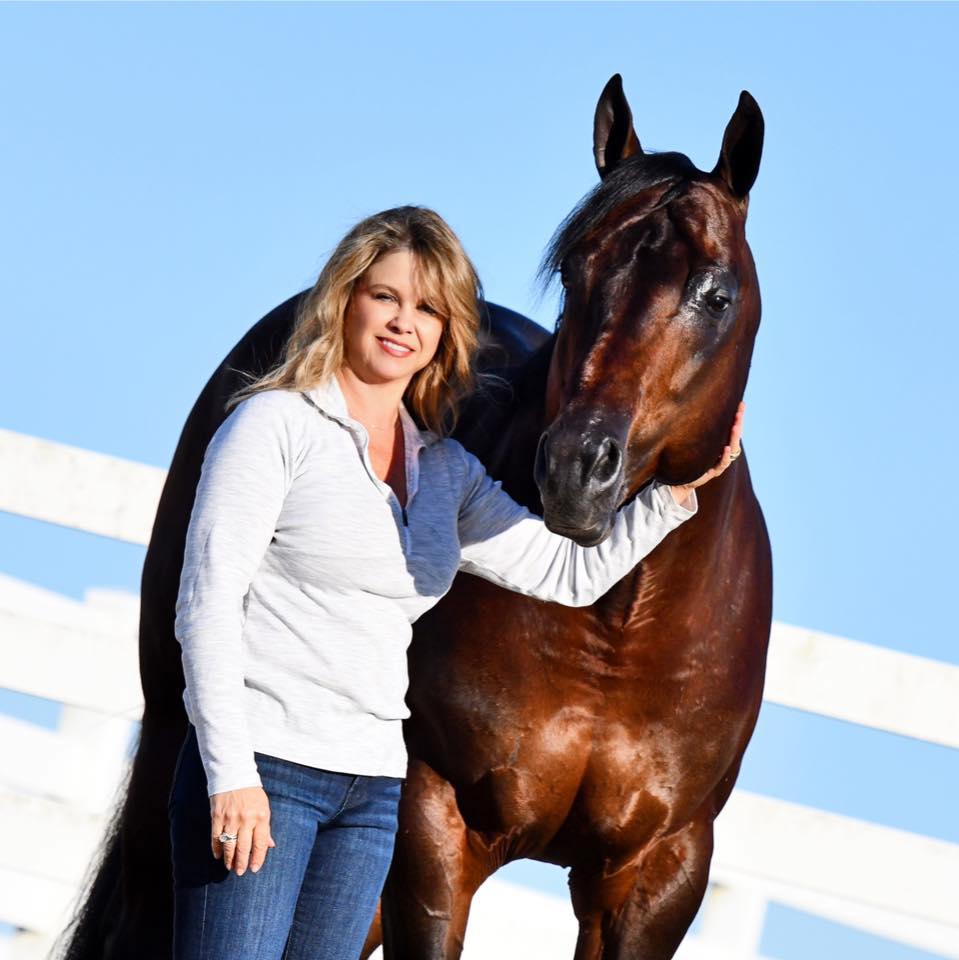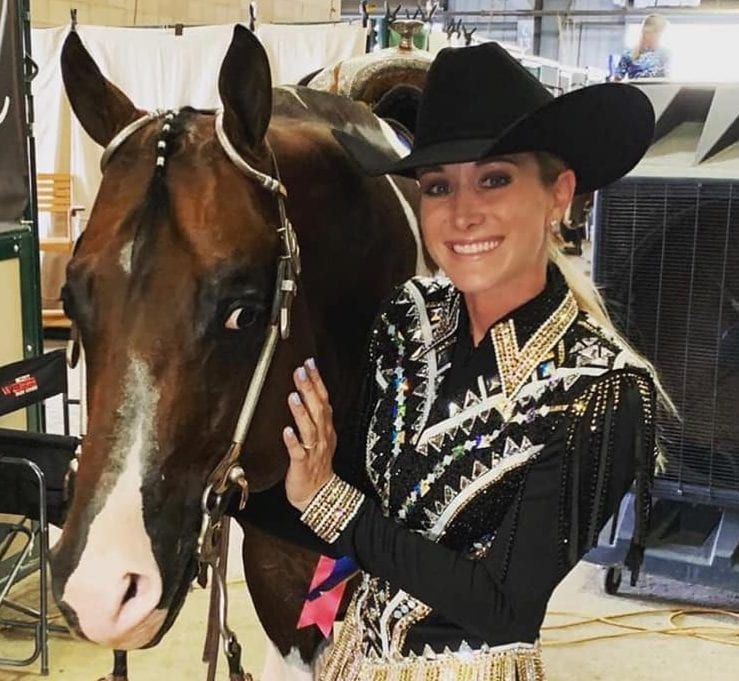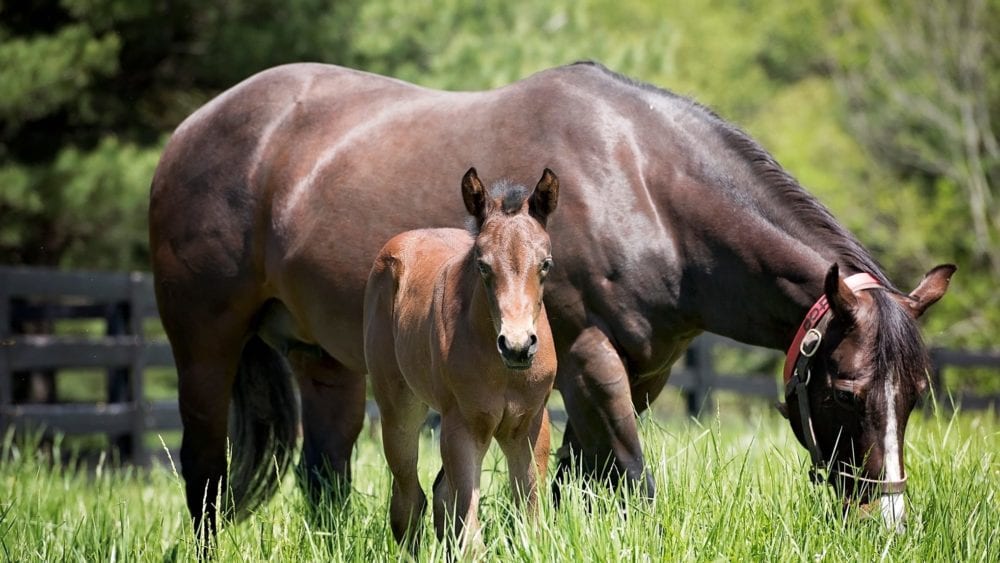Scenario #1: You’ve scrolled through your social media feeds and have admired many adorable newborn foals, each one making you swoon anew. You’ve got a raging case of equine baby fever; the only problem is you don’t own a mare.
Scenario #2: You’ve got a regular blue hen in your barn, but between the stud fees, the current stock you already have on the ground, and life in general, you just can’t commit to breeding another foal.
A standard solution to either problem above is leasing a broodmare. For both parties, a lease agreement can provide some serious advantages for both the breeder and the mare owner. However, breeding in and of itself is a tricky endeavor. If you think leasing might be in your future, you’ll want to carefully consider everything that might come up in a leasing situation.
GoHorseShow talked with some industry breeders to learn more about the ins and outs of leasing a broodmare.
The Pros
 Amy Gumz, Gumz Farms, LLC: “I think leasing a broodmare has the pros that you can utilize a mare that wouldn’t normally be for sale or in your price range. Often, I see a huge benefit to some people with junior stallions that are looking to try a variety of bloodlines without the purchase commitment. This arrangement often allows the owner some relief from the care cost of the animal.”
Amy Gumz, Gumz Farms, LLC: “I think leasing a broodmare has the pros that you can utilize a mare that wouldn’t normally be for sale or in your price range. Often, I see a huge benefit to some people with junior stallions that are looking to try a variety of bloodlines without the purchase commitment. This arrangement often allows the owner some relief from the care cost of the animal.”
 Erin Bradshaw, owner of John Simon (APHA) and Extremely Hot Chips (AQHA): “It has been a great experience for us and opened up the opportunity to have access to World Champion mares that the owners do not want to sell. However, they do want to see babies out of them in show homes being promoted by different stallions.”
Erin Bradshaw, owner of John Simon (APHA) and Extremely Hot Chips (AQHA): “It has been a great experience for us and opened up the opportunity to have access to World Champion mares that the owners do not want to sell. However, they do want to see babies out of them in show homes being promoted by different stallions.”
The Cons
Amy Gumz: “The cons are that the lessee may be inheriting breeding problems, as often there are reasons why owners are not breeding. They [the lessee] may also find a perfect match for that junior stallion, to find her no longer available after the lease contract is over. Some see this as both a pro and a con. Depending on the position, if the leased mare becomes a marketable producer, that is a massive benefit to the owner, but not so much to the lessee.
Erin Bradshaw: “There can be many pros and cons to leasing a mare for breeding, the biggest drawback being foaling complications if the mare is being leased to carry. It is always my recommendation to make sure that you have a breed lease contract between you and the recorded owner of the mare. It should line out not only the agreement on the lease, but also waiving your liability in the event something happens prior, during, or after foaling. I also always recommend that the lessee file a breed lease with the respective association. That way, if something were to go wrong or if the relationship between you and the owner were to be dissolved, you have paperwork proving that you leased the mare for that breeding season. If you are leasing a mare for embryo transfer, which I think is always the best route to go because you limit liability, I always recommend taking the mare to a vet clinic that specializes in ET’s. So, the process moves smoothly, as well as having a breed lease contract that lines out the details of the agreement.
The Fine Print: Contracts
While many, many years ago, handshake deals may have sufficed when it came to horse trades, that practice isn’t advisable anymore. Without a written, signed contract, it is challenging to determine the terms that were agreed upon, and even tougher yet to enforce the details of your arrangement. Having a written agreement will help you to avoid common leasing pitfalls that could result in emotional or even legal duress. When you’re working on a written agreement, it may be helpful to consult with an equine legal expert, your insurer, and the equine associations that any resulting foal would be registered with.
Important topics for consideration include standards for mare care (feed, shoeing, shelter, vet care, etc.), what happens if the mare fails to get in foal, injury or mortality of either mare or foal, and foal ownership and registration.
Amy Gumz: “I think contracts are individual agreements. Make sure both parties are content with the terms. Be sure to outline the time frame, liability issues, and all expenses. Traditionally, the lessee absorbs all care and breeding expenses of the mare and foal. The owner traditionally will maintain insurance on the mare. Some agreements have a lease fee for the use of the mare, while others may ask for the return of the mare in foal. Again, make sure both parties are comfortable with all terms and that it is in writing. This extends to who the covering sire is and especially that the care of the animal meets the expectation of the owner.
Erin Bradshaw: “In the leases I have done where we are doing an embryo transfer, there is a fee associated with purchasing the embryo. In those situations, I do make sure that the contract spells out the details of the ET having to be successful. This is no different than if you shipped semen, and your mare did not get in foal. The biggest aspects to a contract for me are the agreement itself, the liability waiver, and the specifications of payment if you are paying.”
Parting Tip
Erin Bradshaw: “The biggest tip is to make sure you are leasing with someone you know and have a good working relationship with. Make sure you have a breed lease contract as well as a breed lease authorization on file with the respective association.”







